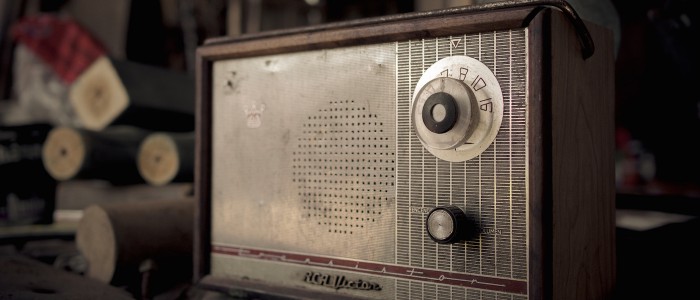
But in broad strokes: Users open the app, and it take signals from what subjects and types of stories and even people they’ve indicated they like, and 60dB will refine that feed of stories over time. The stories available on the platform will be easily searchable and contain familiar content aggregated from elsewhere, but also plenty of shortform content is new for the platform — emphasis on short.
There are “incredible stories people aren’t getting to hear,” Henn told me, whether because the length of many of the available podcasts “don’t fit into people’s lives,” or because it’s too difficult to discover shorter programming in single place.
I immediately thought of Acast’s attempts to emphasize diverse creators and niche interests, and of the constantly personalizing feed that NPR One offers. Henn and Ciancutti said that NPR One was a reasonable comparison: “But we wouldn’t be building this if we didn’t genuinely believe there wasn’t a good option already out there.” (I also immediately jumped to other conclusions, but 60dB is apparently not where NPR One lead Sara Sarasohn, who is leaving NPR, is headed)I left @planetmoney to build this: @the60dB. If you tell stories I think we have something you will want to try.https://t.co/LW2trhJF0x
— Stephen Henn (@HennsEggs) September 22, 2016
60dB also intends to offer data to the people creating for the platform, and not just barebones metrics. One of Henn’s last stories for Planet Money was about A/B testing, for which the team actually tested the effectiveness of the Planet Money episode lede on NPR One.
“One of the things we realized when we can see this type of data is that people can tune out of a story skip or tune out very early, first few seconds, first minute or two of a longer podcast. If you’re going to lose a chunk of your audience, that’s the point at which you lose them,” Henn said. “So just knowing that allows you to think really carefully about what’s the best way to reduce this. That’s tremendously powerful. This is something I really want to share this with everyone else who might be doing this for a living. I’ve been doing this for 20 years. This is late in my career, and now I’m going ‘ah ha!'”
The team declined to say more when I asked about who was paying for Tiny Garage Labs’ work and what the revenue model going forward would be, but Ciancutti dropped a small hint at the direction the team might prefer to go.
“We are not telling our funding story right now. We’ve got plenty of thoughts on monetization, but no one point of view on that at this point,” he said. “But you can see there’s three co-founders, and two of us spent twelve years at Netflix. Looking at our backgrounds you could imagine some of the biases that we have.”
“Netflix was a powerful example of how you can build a company to change consumer behavior in an industry like television, but also create a business model that really has lead to a golden age for high quality television,” Henn added. “The way the industry works now supports more great stuff than ever before. And that’s not a given when a media institution makes the transition into the digital world. That’s what I left Planet Money to work on.”